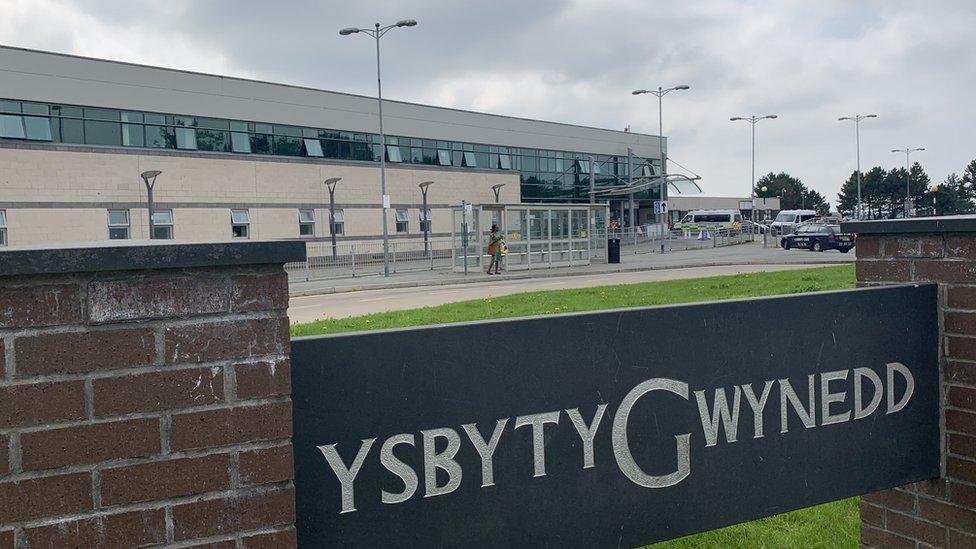Nurse strikes Wales: Pay dispute 'beginning of end for NHS'
- Published
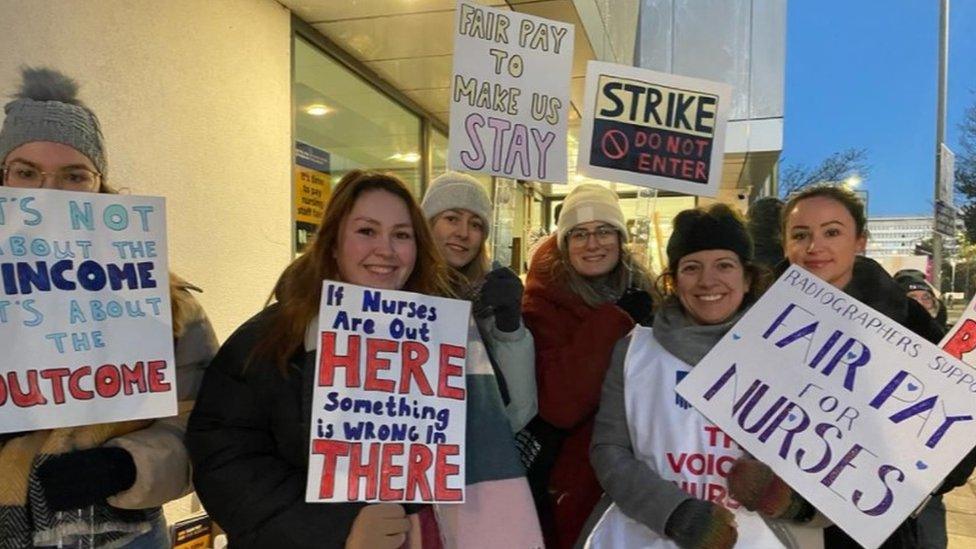
Health workers in Cardiff have taken to picket lines to support their nursing colleagues
A striking nurse has warned it could be "the beginning of the end for the NHS" if pay and conditions are not reviewed.
Another union member said they would "continue as long as it takes" to prompt a pay negotiation.
It comes as nurses in all but one Welsh health board are taking part in a second day of strike action over pay.
The Welsh government said it needed more funding from the UK government to afford pay rises, and that nurse's pay is set by an independent review body.
Watch: On the picket line with nurses across the UK
It added it would work with the NHS, patients and partners to ensure minimal disruption.
The UK government said it was giving a "record" £18bn a year in funding to the Welsh government.
Planned care is set to be the worst hit, with appointments postponed so that urgent care can be prioritised.
Strikes are being held by members of the Royal College of Nursing (RCN) across the country.
All health boards in Wales, except for Aneurin Bevan, are affected by striking staff.
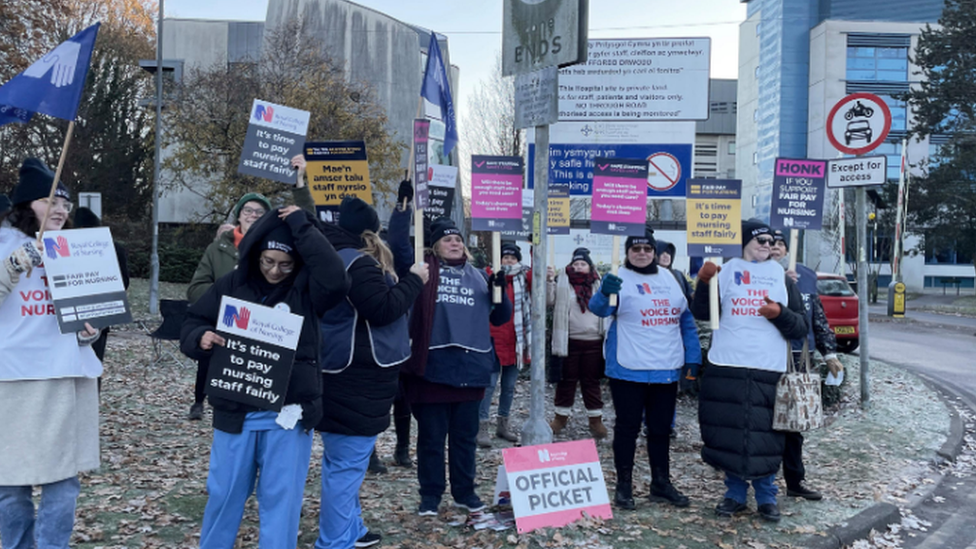
Members of the Royal College of Nursing (RCN) on the picket line outside University Hospital of Wales in Cardiff
Kath Davies, a staff nurse on the neuroscience high care ward at University Hospital Wales and one of the picket supervisors in Cardiff, told BBC Radio Wales Breakfast: "It feels good, a lot warmer thankfully! The rain is holding off so I think we'll have an easier day today than last week to get the message across as to why we are striking.
"We have worried the government, and you can tell by the things they are saying and trying to vilify us because of what we are doing. And the message has got across to the public.
"We cannot deliver the standard of care we want to deliver. Without new staff coming into the service it could be the beginning of the end of the NHS and none of us want that."
Ms Davies added negotiations "haven't even started".
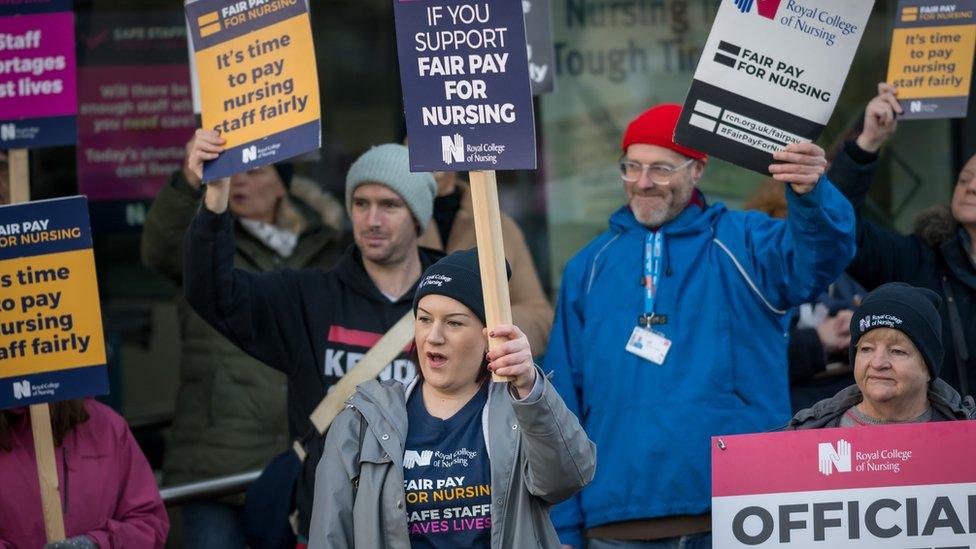
Cardiff nurses on the picket line over pay
"We want people around the table, to negotiate the pay rise that's agreeable to everybody and unfortunately there's no dialogue at the moment," she said.
Addressing concerns over patient care while nurses strike, she added: "Nobody has been left on their own today, all wards have got adequate staffing and have often got more staff on today than they have had yesterday or tomorrow or a week ago, because more effort has been made.
"We're not taking people off the wards, we're taking people away from clinics. Nobody is going to come to any harm by not having an outpatient appointment today, one day here or there is not going to make any significant difference to anybody."
She continued: "I know exactly what patients are feeling like, because I am one, and I know what relatives of patients will be feeling, because I am one.
"The harm is being caused every other day because there simply aren't enough staff to do what is needed, and that's what we are standing up for.
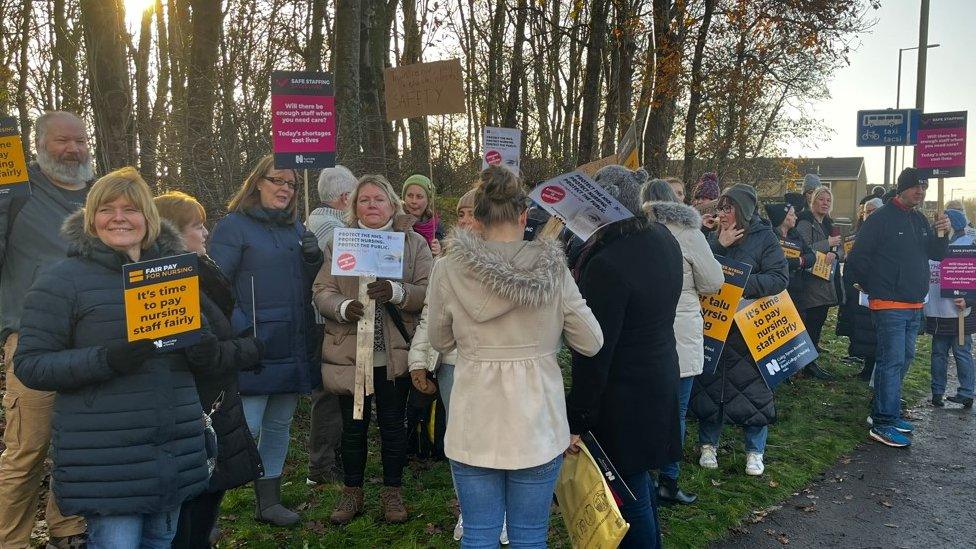
Nurses gathered on the picket line at Princess of Wales Hospital, Bridgend on Tuesday morning
'Knock-on effect'
Meanwhile in Bangor, Gwynedd, Sue Williams, RCN representative for north Wales, said the public support for strikers on her picket line has been excellent.
"I hope that we are going to make progress. We've not just come out because of pay only, we've come out because there's no staffing and because of patients safety," she said.
"We haven't had a decent pay rise so what you have is a knock-on effect. People are leaving, people are not coming, we're not recruiting and we're not retaining nurses. It's a profession, it's a degree level, so we should be recognised for the work that we do."
She said the Welsh government's claim it would need more funding from the UK government to start a pay discussion was "not good enough".
Discussing possible future strike action, Ms Williams added: "I am going to stay here as long as I have to. Not one of us nurses wants to be on strike, but we have no choice.
"We will continue as long as it takes."
On the picket line outside the Princess of Wales Hospital in Bridgend, staff nurse Neil Evans, 51, described the dispute as a "fight for the future of nursing".
"We are losing nurses," he said.
"They're going to the private sector where the rewards are better and you can't blame somebody for that.
"We are working short-staffed every day. We need more nurses and the only way you're going to get that is to reward them for the responsibilities we have."
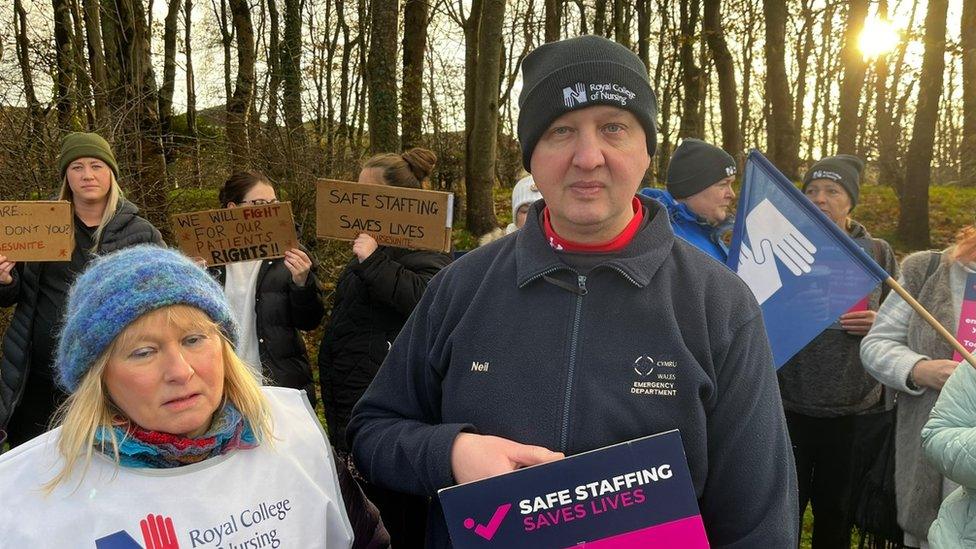
Neil Evans (right) says striking is a "last resort" for nurses
He said taking an industrial action was a "last resort", but he and his colleagues believed it was the only way their concerns would be heard.
"We've tried negotiation, we've tried talking, we've tried stomping our feet. They don't seem to want to listen.
"Staff are burning out. I've seen senior nurses breaking down on shift crying. They just cannot sustain this pressure.
"If we need to be, we'll be here as long as it takes."
- Published20 December 2022
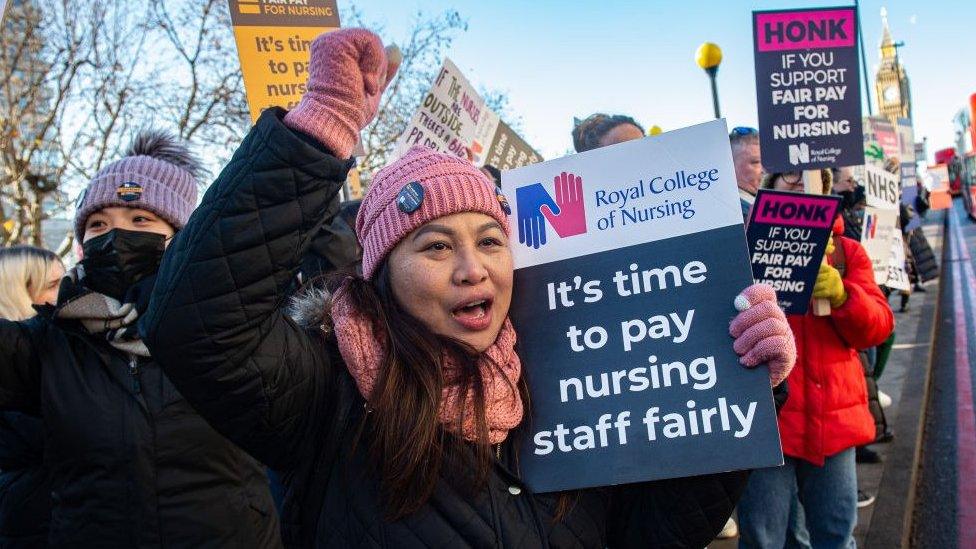
- Published18 December 2022
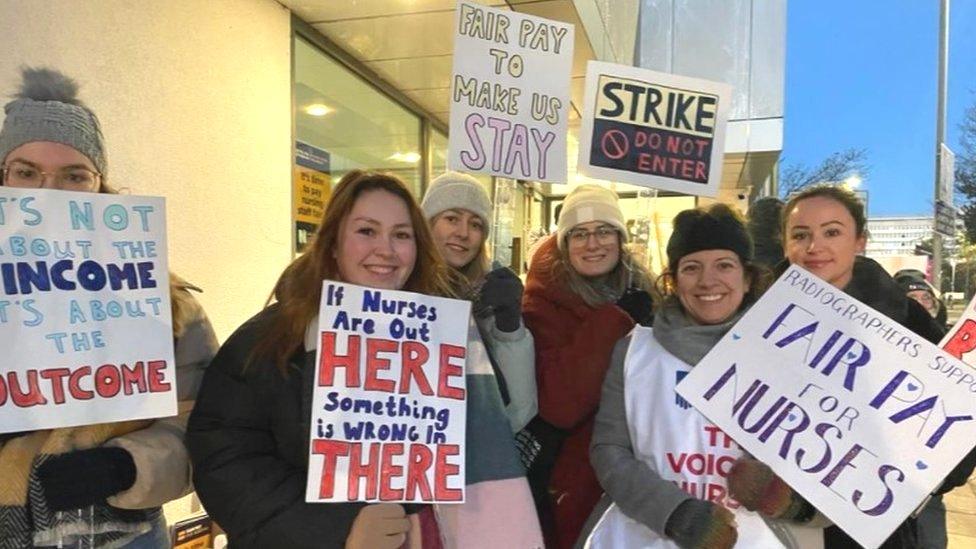
- Published15 December 2022
